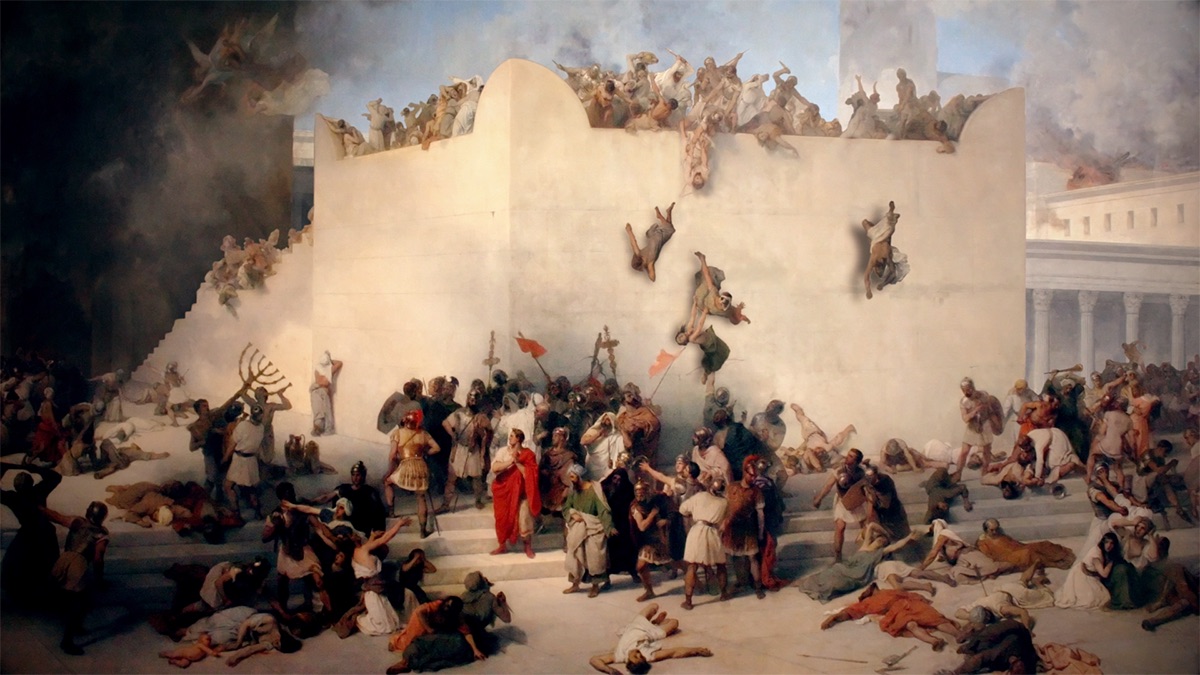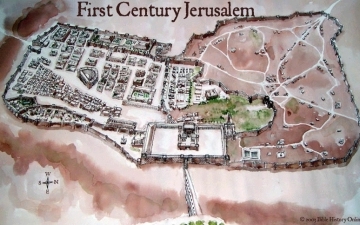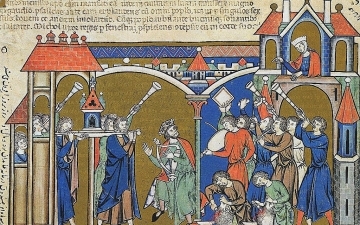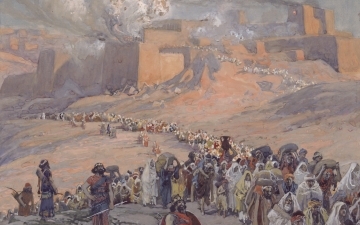
The destruction of Jerusalem stands as a haunting chapter in Hebrew history, marked by the Roman siege and the tragic downfall of the city. As we delve into the biblical accounts and historical records, we uncover the harrowing tale of Jerusalem's survival, resistance, and ultimate devastation.
The Roman Siege of Jerusalem:
In 70 A.D., the Roman legions, led by General Titus, laid siege to Jerusalem during the First Jewish-Roman War. The city was surrounded, and its inhabitants found themselves trapped within its walls. The situation became increasingly dire as food and resources dwindled, leading to a desperate struggle for survival.
Fulfillment of Prophecy:
The destruction of Jerusalem had been foretold by Jesus Himself. In Luke 19:43-44, during His entry into the city, Jesus lamented, "For the days will come upon you when your enemies will set up a barricade around you and surround you and hem you in on every side and tear you down to the ground, you and your children within you."
Jesus' prophetic words were tragically fulfilled during the Roman siege, as the city's defenses were breached, and its inhabitants faced unimaginable suffering.
The Fall of the Temple:
The Temple, the spiritual heart of Jerusalem and the center of Jewish worship, faced a devastating fate. In Matthew 24:1-2, Jesus predicted, "Truly, I say to you, there will not be left here one stone upon another that will not be thrown down."
As the Roman legions conquered Jerusalem, the Temple fell victim to destruction. The once glorious structure, filled with historical and spiritual significance, was reduced to ruins, fulfilling Jesus' prophecy.
The Jewish Resistance:
Despite the overwhelming force of the Roman army, a group of Jewish rebels fiercely resisted the siege within the city walls. Their determination and courage demonstrated the resilience of the Jewish people and their unwavering commitment to defending their homeland.
However, the Roman forces eventually breached the walls, leading to a brutal and prolonged battle within the city's narrow streets. The fighting intensified, resulting in heavy casualties and widespread devastation.
The Aftermath:
The Roman victory was a costly one, with significant loss of life on both sides. The aftermath of the siege left Jerusalem in ruins, and thousands of Jewish survivors were taken captive and dispersed throughout the Roman Empire. The Jewish Temple was completely destroyed, leaving an indelible mark on the collective memory of the Jewish people.
The story of Jerusalem's destruction serves as a poignant reminder of the devastating consequences of war and the resilience of a people determined to defend their homeland. The Roman siege brought about the fulfillment of biblical prophecies, underscoring the significance of Jesus' words and the importance of heeding His teachings.
The survival and destruction of Jerusalem echo through the annals of Hebrew history, becoming a stark testament to the consequences of rebellion and the profound impact of conflict on the destiny of a nation. Today, the memory of Jerusalem's destruction continues to shape the identity and faith of the Jewish people, serving as a poignant reminder of the importance of unity, peace, and preservation of cultural heritage.











